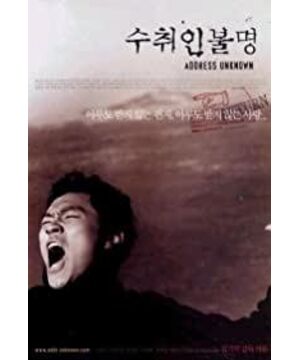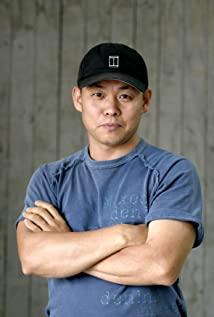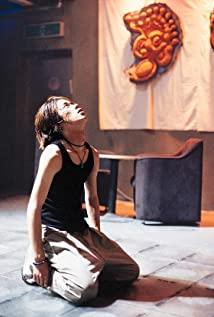In Kim Ki-duk's lens, we can often see such a group of people who are indifferent, rebellious, sad, and lonely. These alienating words make us realize Kim Ki-duk's concern for a marginalized society. Behind the indifference is unbridled violence, behind the rebellion is the horrific injury, behind the sadness is the cruelty of sighing, and behind the loneliness is the compassion in tears. What we see in "Unknown Recipient" is a world of emotional and spiritual barriers: the communication between people is replaced by violence and sex, and the darkness of human nature is revealed in the camera lens without any concealment. Single mothers and mixed-race sons, disabled fathers and introverted sons, eye-deficient girls and GIs, dog meat dealers and single mothers, these grotesque elements make up the world of Unknown Recipient. The whole film is full of despair, the post-war society is shrouded in haze, the single mother waits for her husband's reply, and in this far-off waiting, she faces the violence of her son, the lust of a dog meat dealer, and the longing of a disabled father. Honor comes, the introverted son longs for love, and the girl with a flawed eye is reluctant to face the love at hand because of her inferiority, but chooses the American soldier. It's all just because of the promise of GI to her to see the world with both eyes. However, this exchange brought harm, and in the end, she returned to her original life. The dog meat dealer died at the hands of the single mother's son. The single mother's last hope was gradually shattered with the death of her son. When her life was over, her expectations also came, and all this was just wiped by her. over the shoulder.
In this film, we often see nets and simple houses. These nets live in people's hearts, spirits, and society. Those shabby houses show us the life of Korean people after the war. Maybe they only represent a type of people, but this type of people are the members of the society. The people we see in this movie are full of unrelenting desire, anger, hatred, and everyone is extremely mad. The madness brings not the liberation we imagined but despair, the hidden disease in the human heart—— Distress and despair are vividly expressed in this film. In Kim Ki-duk's lens, life is fragile, while death and violence, blood and indifference are infinitely magnified. People at the bottom of society use their actions to fight against the world, but the way they take is violence, and the extreme perverted behavior must be visually and spiritually shocking.
Love in this film is the most sad element. Two people who love each other always meet in despair. What little love brings us is only regretful feelings, so passion and desire are completely opposite in this film. In terms of perspective, we can call it lust, but it has nothing to do with love. Once lust is not satisfied, the evil nature will be exposed. In such extreme emotions, people will lose themselves and stage a cruel episode. Beauty is false and ugliness is true. This sentence is true. What we see in this film is the real ugliness, and that ugliness comes from the manifestation of human nature. People who live in isolation are under enormous pressure. The dual pressures of life and psychology are the root of their abnormal behavior. They use their own ways to interpret the society, and also use their own ways to repay the society. All forbearance is expressed in extreme ways. . These forgotten marginalized people are the essence of this society. The ugly side of human nature is often covered up by our hypocritical mask, weakness, desire, fear, etc. These problems are particularly evident in marginalized people. All the unreasonable things we see through the lens are actually reasonable existences. People forgotten by society are looking for their own way of life, and sometimes living means dying.
The gloom in "Unknown Recipient" on the one hand questions the veiled human nature, on the other hand explores the essence of life, two complex thoughts run through the film's beginning and end. The stern image style and the condensed dialogue of characters form a huge tension, which makes the human nature and desire in the film infinitely magnified in front of the screen.
View more about Suchwiin bulmyeong reviews










